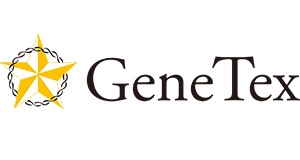SMAD4 antibody
SMAD4 antibody
SKU
GTX03325-500
Packaging Unit
500 μl
Manufacturer
GeneTex
Availability:
loading...
Price is loading...
Application Note: IHC-P: 1:50-1:100. *Optimal dilutions/concentrations should be determined by the researcher.Not tested in other applications.
Calculated MW: 60
Positive Control: Colon carcinoma, Pancreas carcinoma
Form: Liquid
Buffer (with preservative): PBS, 0.1% BSA, 0.05% Sodium azide.
Concentration: Batch dependent (Please refer to the vial label for the specific concentration.)
Background: This gene encodes a member of the Smad family of signal transduction proteins. Smad proteins are phosphorylated and activated by transmembrane serine-threonine receptor kinases in response to transforming growth factor (TGF)-beta signaling. The product of this gene forms homomeric complexes and heteromeric complexes with other activated Smad proteins, which then accumulate in the nucleus and regulate the transcription of target genes. This protein binds to DNA and recognizes an 8-bp palindromic sequence (GTCTAGAC) called the Smad-binding element (SBE). The protein acts as a tumor suppressor and inhibits epithelial cell proliferation. It may also have an inhibitory effect on tumors by reducing angiogenesis and increasng blood vessel hyperpermeability. The encoded protein is a crucial component of the bone morphogenetic protein signaling pathway. The Smad proteins are subject to complex regulation by post-translational modifications. Mutations or deletions in this gene have been shown to result in pancreatic cancer, juvenile polyposis syndrome, and hereditary hemorrhagic telangiectasia syndrome. [provided by RefSeq, Aug 2017]
Uniprot ID: Q13485
Antigen Species: Human
Immunogen: Recombinant fragment corresponding to a region within amino acids 322 and 552 of SMAD4
Purification: Purified IgG
Conjugation: Unconjugated
Full Name: SMAD family member 4
Calculated MW: 60
Positive Control: Colon carcinoma, Pancreas carcinoma
Form: Liquid
Buffer (with preservative): PBS, 0.1% BSA, 0.05% Sodium azide.
Concentration: Batch dependent (Please refer to the vial label for the specific concentration.)
Background: This gene encodes a member of the Smad family of signal transduction proteins. Smad proteins are phosphorylated and activated by transmembrane serine-threonine receptor kinases in response to transforming growth factor (TGF)-beta signaling. The product of this gene forms homomeric complexes and heteromeric complexes with other activated Smad proteins, which then accumulate in the nucleus and regulate the transcription of target genes. This protein binds to DNA and recognizes an 8-bp palindromic sequence (GTCTAGAC) called the Smad-binding element (SBE). The protein acts as a tumor suppressor and inhibits epithelial cell proliferation. It may also have an inhibitory effect on tumors by reducing angiogenesis and increasng blood vessel hyperpermeability. The encoded protein is a crucial component of the bone morphogenetic protein signaling pathway. The Smad proteins are subject to complex regulation by post-translational modifications. Mutations or deletions in this gene have been shown to result in pancreatic cancer, juvenile polyposis syndrome, and hereditary hemorrhagic telangiectasia syndrome. [provided by RefSeq, Aug 2017]
Uniprot ID: Q13485
Antigen Species: Human
Immunogen: Recombinant fragment corresponding to a region within amino acids 322 and 552 of SMAD4
Purification: Purified IgG
Conjugation: Unconjugated
Full Name: SMAD family member 4
| SKU | GTX03325-500 |
|---|---|
| Manufacturer | GeneTex |
| Manufacturer SKU | GTX03325-500 |
| Green Labware | No |
| Package Unit | 500 μl |
| Quantity Unit | STK |
| Reactivity | Human |
| Clonality | Polyclonal |
| Application | Immunohistochemistry (paraffin) |
| Isotype | IgG |
| Human Gene ID | 4089 |
| Host | Rabbit |
| Product information (PDF) | Download |
| MSDS (PDF) |
|

 Deutsch
Deutsch







